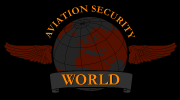Further restrictions may follow five years of tough measures
Since the September 11 atrocities, airlines entering US airspace have been required to fit bullet-proof, lockable cockpit doors which can only be opened with the permission of the pilot. Metal cutlery has been replaced with plastic. BAA has recruited more than 1,000 extra security officers to staff checkpoints at its seven airports. During periods of heightened alert, as many as 25% of people are subject to body searches and staff monitoring x-ray machines are tested with a computer-generated image of a weapon at least once per shift. Some passengers are searched again at departure gates.
In America, all passengers are required to take off their shoes after the attempt by the so-called "shoe bomber", Richard Reid, to detonate a bomb in his trainers. Some airlines forbid queuing for on-board lavatories on the grounds that people may be gathering to plot an attack.
Terry Trippler, American author of the Airline Rules Guide, said: "If we'd have told people that travelling by air was going to entail what it does today, they'd have said 'no way'. But people have adjusted - we've matured as a travelling public and we accept that this is now the typical way."
At airports, concrete barriers have been erected around buildings. Scissors, tweezers and even knitting needles are banned on flights. BAA confiscates 6m items annually, most of which are sold for scrap. BAA has struggled to manage the disruption - it was fined £1.1m by the Civil Aviation Authority this year for keeping passengers waiting too long at checkpoints.
One issue of contention is the use of passenger profiling to determine who should come under greater scrutiny. Human rights groups have criticised methods which use gender, age, ethnicity and appearance to pick out high-risk passengers. But Sir Rod Eddington, the former head of British Airways, has argued strongly for profiling, asking whether it is really logical for a "75-year-old grandmother" to face the same scrutiny as a 25-year-old male who bought his ticket in cash at the last moment.
El-Al's strict security model
Airport security in Israel - reputedly the strictest in the world - may give an indication of what is in store for passengers elsewhere after yesterday's foiled attacks.
At a checkpoint before Ben Gurion airport vehicles come under scrutiny. Passengers may be picked out for passport checks. There is another spot check and a metal detector as they enter the terminal. Then they join the queue for questioning.
"What was the purpose of your visit to Israel? What did you do here? Who did you meet? Which cities did you visit? Is this your only passport? How many times have you been to Israel? Do you speak Arabic? Have you any knives?"
The questions come thick and fast. Officials are not interested in these details. They are looking for inconsistencies that suggest someone is hiding something.
"What time do you normally arrive at work? What's the first thing you do when you get there?" The same question may be asked two or three times.
Bags may be searched and checked for traces of explosives. Mobiles and purses may be scanned and items including laptops taken away for examination.
With luck, passengers will then reach the check-in desk. If not, they may be asked to accompany staff to a small room.
On receiving a boarding pass they then queue up for the security checks standard in most airports: metal detectors and x-ray scans of hand luggage.
The Guardian









0 Comments:
Post a Comment
<< Home